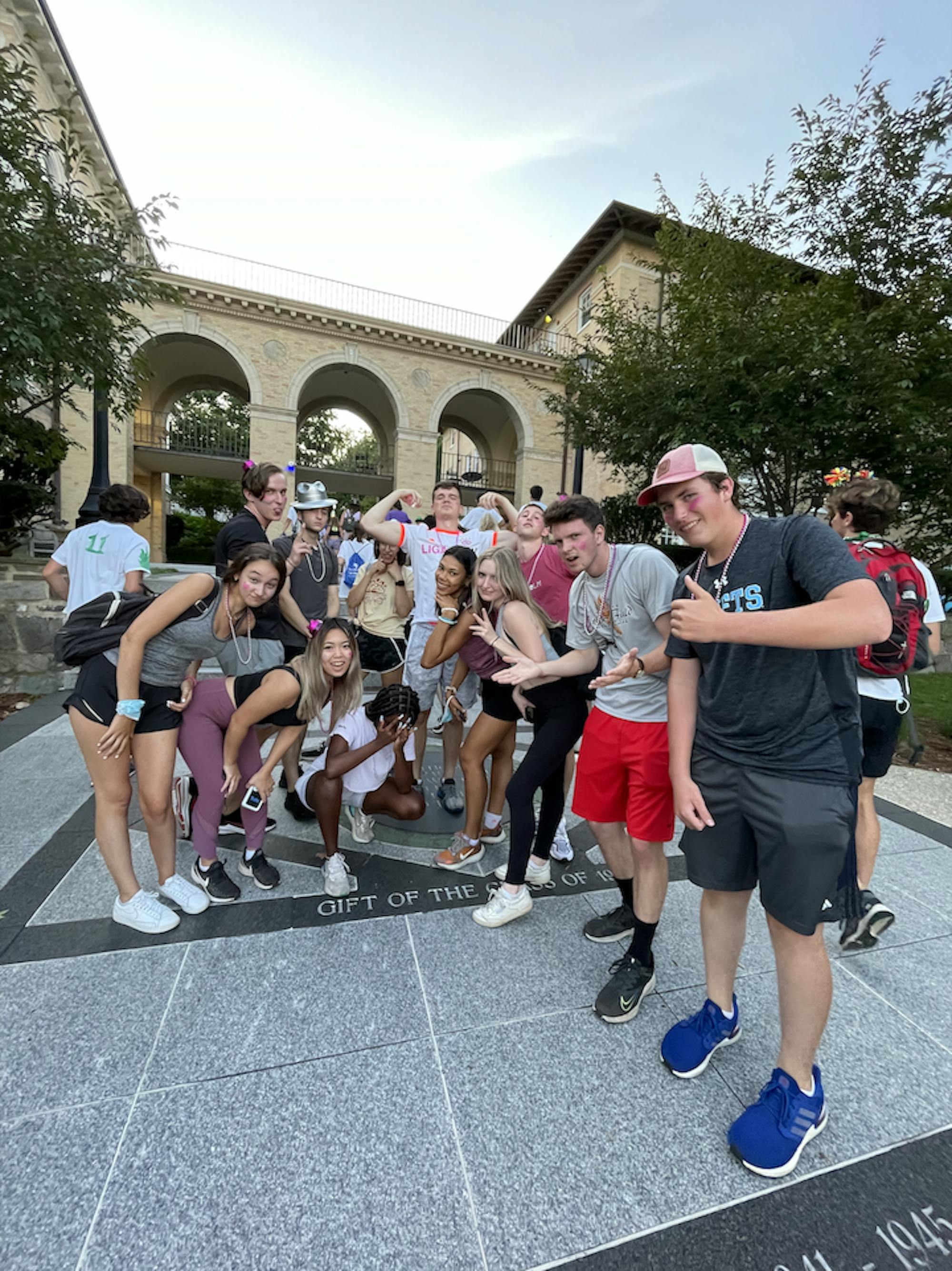First-year and transfer students began arriving to participate in pre-orientation programs on Aug. 27. This year, the programs were offered in person, marking a change from last year's virtual itinerary.
According to Chelsea Jordan, associate director of campus life, over 1,000 incoming students participated in some form of pre-orientation program. Program choices ranged from several days of backpacking, camping or canoeing in New England with Tufts Wilderness Orientation (TWO) to community service trips in the local area with First Year Orientation Community Service (FOCUS).
According to Jordan, students and student leaders all followed Tufts University’s fall COVID-19 protocols, including a testing sequence at move-in and wearing masks at indoor locations, regardless of if students lived on or off campus. With these precautions in place, all pre-orientation programs were offered in-person, unlike last year when all programming was virtual.
Jordan mentioned that pre-orientation programs are largely student-run and operated. This means that student coordinators do the legwork to prepare for the first years’ arrival and also train the upperclassman pre-orientation group leaders. This year, the role included adapting the programming to meet COVID-19 guidelines.
“We worked really closely with Health Service and with various Tufts administration [staff] to get all of our steps cleared,” TWO Student Coordinator Emmy Daro said.
There were several logistical changes made to ensure that the program was operating safely. Daro, a junior, explained that, in addition to wearing masks indoors, the program de-densified transportation and offered individual, wrapped-style meals.
Student coordinators and group leaders faced additional challenges from transitioning back to in-person programming after last year’s entirely virtual pre-orientation.
“A lot of the generational knowledge that is in the program, passed down from the coordinator team year to year, was lost,” Daro said. “And so it sort of felt like we were starting from scratch on a lot of things.”
FOCUS Group Leader Avani Kabra agreed that it was a new challenge to lead traditional in-person programming.
“It just required an institutional memory of people who are just older to … try and remember what it was like two years ago,” Kabra, a junior, said. “So that was definitely difficult.”
Despite these new challenges, student leaders viewed the end result as a success.
“Ultimately, because this program is almost entirely outside ... things operated as normally as they could have," Daro said. "And that was a really incredible feeling to see happen, to see so much of what makes the program special not be lost."
Fitness and Individual Development (FIT) group leader Katie Shelburne felt a sense of appreciation among the members of the group she led.
“They all came in extremely excited ... I know a lot of them have been in online school for the last year and a half,” Shelburne, a sophomore, said.
The in-person FIT experience was also important to Shelburne, as her own experience was virtual.
“I felt like it was ... much easier to connect with my FITters and other fellow leaders in person," she said. "It was easier to check how [everyone] was doing in-person rather than behind the screen."
Overall, the small-group format allows students to get to know one another on a more personal level within larger pre-orientation programs. Most programs divide participants into smaller groups with dedicated upperclassmen group leaders. In addition to leading planned activities, group leaders like Shelburne act as mentors to new students by providing advice and resources as well as helping them orient themselves physically on campus.
In general, students seemed very happy with their time in pre-orientation.
“I think it was really fun. One thing I wasn't expecting at all is that the leaders genuinely did … want to be your friends," Anna O'Sullivan, a first-year, said. "And it felt less like it was kind of an authority and … more of just like, people to give you advice … I think everybody found little groups or communities whether that was new friends or just through the actual pre-orientation. It gave me a better sense of Tufts.”






